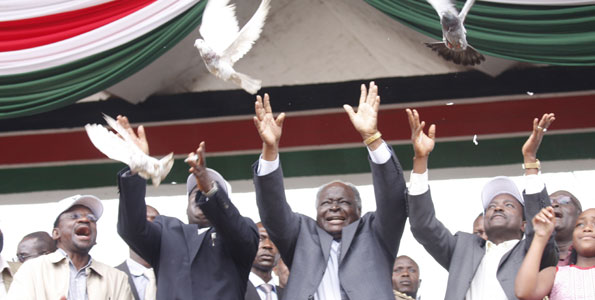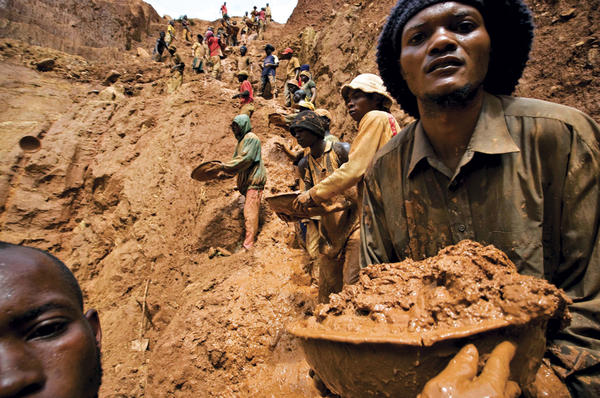Post-colonial approaches to Africa
 Friday, May 28, 2010 at 12:09AM
Friday, May 28, 2010 at 12:09AM 
FT analysis full-pager by Tom Burgis highlights China's relationship with Niger over uranium mining.
The opening gambit:
Following the same bargain it has struck across the continent – swapping infrastructure and cash for resources to sustain its breakneck growth – China has secured access not only to another source of African oil but also to what is perhaps the single commodity considered more sensitive than crude: uranium. It has also turned Niger into a bellwether for those who fear that the struggle to secure the continent’s resources risks re-creating the ruinous brinkmanship of the cold war.
 The loser in this particular thrust? France's Areva, which enjoyed a 40-year monopoly on Niger uranium. Given the level of development in Niger, I would say that competition wouldn't be a bad step.
The loser in this particular thrust? France's Areva, which enjoyed a 40-year monopoly on Niger uranium. Given the level of development in Niger, I would say that competition wouldn't be a bad step.
Naturally, any such journey is contentious:
From 2004, when he became the first president in Niger’s history to be re-elected, Mr Tandja set about loosening Niamey’s umbilical bond to Paris. From 2007, Niger granted some 150 new permits to prospect for uranium, which accounts for up to half its export earnings. Relations with France reached their nadir when his government accused Areva of funding the Tuareg rebels of the Sahara who kidnapped expatriates and laid landmines in the northern mining region, demanding a greater share of the uranium spoils. Two senior Areva officials were ejected from the country in spite of French denials.
The fruits of Mr. Tandja's boldness became quickly apparent:
The competition has seen work start on Niger’s first refinery and a $700m hydroelectric barrage, not to mention hundreds of millions of dollars in “signature bonuses”, courtesy of Beijing. It helped the country wring tougher terms from France before granting permission for Areva’s vast new mine, which will make the country the world’s second-biggest uranium producer after Kazakhstan.
But apparently Mr. Tandja's closeness to China led to his political downfall:
Yet a February coup d’etat heightened the anxiety of those who see danger in a stand-off. Although ethnic rivalries and opportunism played their part in the putsch, Mamadou Tandja became the first African leader whose downfall could be traced directly to his embrace of Chinese suitors. “It was because Tandja had Chinese money that he felt he could mock the European Union, Ecowas [the regional bloc], the US,” says Mohamed Bazoum, a former minister who now serves on the “consultative council” created by the military junta that seized power.
The US concern? Naturally, it's all about terrorists getting their hands on WMD --namely, Al-Qaeda's local offshoot.
China's take on things? The usual:
Perhaps Mr Tandja had not acquainted himself with China’s policy of non-interference in the domestic affairs of African states. When young officers stormed the presidential palace on February 18, Beijing was as silent as it had been while he amassed power. The toppled president remains under lock and key. The junta pledged elections by February and has barred its own members from contesting them – so those overseeing the transition are not themselves participants. The soldiers have signalled they have no plans to break with China, although they intend to audit all Tandja-era mining permits.
They will do business with whomever is in power--not a particularly Chinese trait.
And don't think the Chinese are backing off due to the recent volatility:
Xia Huang, China’s ambassador in Niamey, says Beijing’s bonds to Niger are unshaken and that grander projects are in the offing, including pipelines and coal-fired power stations. China, he says, has offered Africa a “more profitable option” than other partners have. With a little overstatement, he adds: “This country has already seen uranium extraction for nearly 40 years. But when one sees that the direct revenues from uranium are more or less equivalent to those derived from the export of onions each year, there’s a problem.”
Nice point, great piece.























